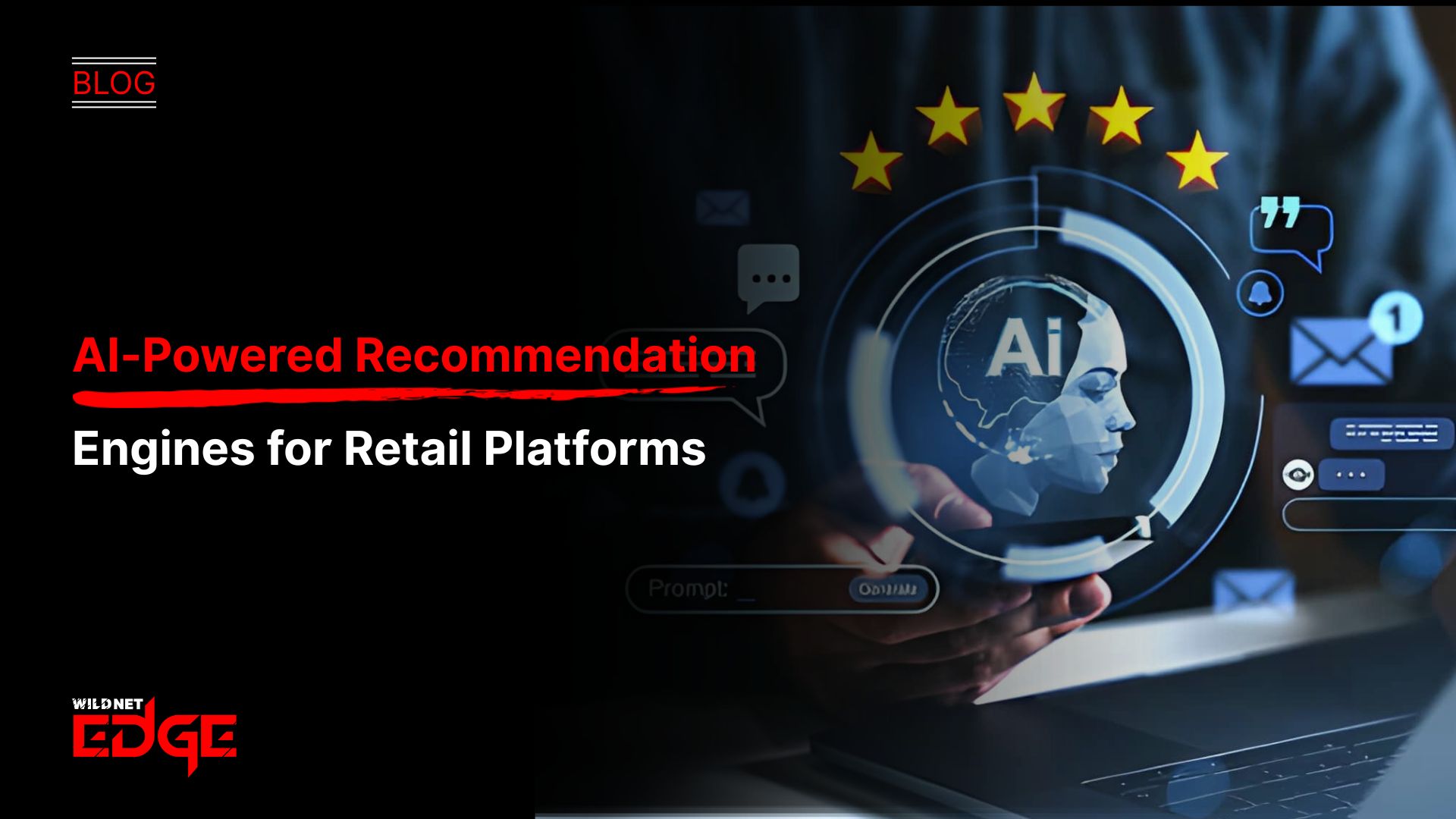Struggling to cut through the noise and connect with your customers on a personal level? If your retail platform’s sales are stuck and customers aren’t coming back, it’s time to rethink your strategy. An AI recommendation engine isn’t just a buzzword—it’s the secret weapon to delivering personalized experiences that upsell effectively and keep shoppers hooked. In this post, you’ll uncover how AI-driven product personalization and upsell suggestions can revolutionize your retail approach and boost your bottom line.
Product Personalization: The Heart of AI Recommendations
At the core of every successful retail platform lies one ultimate goal: to meet customers’ unique preferences with precision. AI recommendation engines empower this by analyzing vast amounts of customer data to tailor product experiences that feel uniquely relevant.
Understanding Customer Preferences Through Data Analysis
AI recommendation engines leverage machine learning models to sift through complex customer datasets—ranging from browsing history, search queries, purchase records, to even demographic and behavioral insights. They identify hidden patterns and affinities that traditional analytics often miss, such as subtle shifts in user taste or seasonal trends.
Modern platforms in 2025 deploy hybrid AI models combining collaborative filtering and content-based filtering, allowing them to learn not only what products similar users prefer but also the attributes of products a customer is likely to engage with. This dual approach ensures recommendations remain highly personalized regardless of a user’s visit frequency or product category.
Dynamic Content Delivery Based on Browsing and Purchase Behavior
An AI recommendation engine doesn’t just suggest products; it dynamically adapts what’s shown on your retail platform in real-time. For example, if a user frequently explores athletic wear but rarely purchases, the engine might highlight trending items, limited-time offers, or related accessories geared to trigger purchase.
Dynamic content delivery also extends beyond the product listing page. Personalized email campaigns, push notifications, and even in-app messages now incorporate AI-driven suggestions proven to resonate with individual users based on their latest activity. This omnichannel personalization creates consistent shopping journeys, reducing friction and boosting engagement.
Impact on Customer Engagement and Retention
The result of effective product personalization is measurable increases in customer engagement and retention. Personalized product displays keep shoppers spending more time exploring, reducing bounce rates. Shoppers are more likely to return to platforms where their preferences are understood and anticipated.
According to recent industry benchmarks, retail platforms integrating AI recommendation engines see up to a 30% boost in repeat purchase rates and a 25% increase in average session duration. This deeper engagement cements brand loyalty and directly translates into higher lifetime customer value.
Upsell Suggestions: Driving Revenue Growth with AI
An AI recommendation engine doesn’t stop at personalization—it actively drives revenue growth with intelligent upsell suggestions that increase your average order value without being intrusive.
Identifying Effective Upsell Opportunities
Upselling implies offering customers a related or premium product that complements their main purchase. AI excels at uncovering these upsell opportunities by analyzing complex purchase bundles and consumer behavior. For instance, if a customer adds a smartphone to their cart, the engine might recommend high-margin accessories such as wireless earbuds or premium protective cases.
Sophisticated AI models consider multiple factors before suggesting upsells: customer price sensitivity, historical upsell acceptance, and inventory levels, ensuring that prompts are relevant and financially viable.
Timing and Placement of Upsell Prompts
The efficacy of upsell suggestions heavily depends on when and where they are presented. AI recommendation engines strategically time these prompts during moments of high purchase intent—such as at checkout, within the shopping cart, or on product detail pages.
2025 retail platforms increasingly utilize contextual triggers—like user scrolling behavior or hover events—to display upsell offers exactly when customers are most receptive. Coupled with A/B testing and reinforcement learning, AI optimizes prompt placement to reduce cart abandonment and increase conversion rates.
Examples of Successful Upsell Strategies in Retail
Leading brands actively employing AI-driven upsell strategies show clear ROI. For example:
- Fashion Retailers use AI to recommend complementary clothing items or premium fabric versions in real-time, tailoring offers based on season and style trends, resulting in a 20% uplift in average order value.
- Electronics Stores integrate upsell prompts of extended warranties and device insurance at checkout, with AI refining recommendations based on customer risk profiles, increasing attachment rates by up to 15%.
- Home Goods Platforms tailor upsell suggestions like setup services or matching decor items, with machine learning optimizing bundles and displays across desktop and mobile.
By combining product personalization with upsell suggestions, AI recommendation engines transform passive customers into active, higher-value shoppers.
Integrating AI Recommendation Engines into Your Retail Platform
Implementing an AI recommendation engine requires both strategic planning and technical readiness to ensure a seamless deployment that maximizes impact.
Choosing the Right AI Tools and Platforms
Start by evaluating AI tools that align with your platform’s scale and product catalog complexity. Leading solutions in 2025 like WildnetEdge, Amazon Personalize, and Google Recommendations AI offer powerful, scalable APIs with built-in natural language processing and deep learning capabilities.
Focus on platforms featuring:
- Real-time inferencing for instant personalization
- Customizable algorithms adaptable to specific retail verticals
- Easy integration with existing eCommerce CMS, CRM, and analytics tools
Taking advantage of modular AI services enables retailers to start small and scale recommendations as data grows.
Ensuring Data Quality and Integration with Existing Systems
High-quality, reliable data is fundamental to AI recommendation engine success. This means consolidating customer profiles, purchase histories, and product metadata into a unified data layer.
Data cleaning practices—such as deduplication, normalization, and timely updates—must be automated to avoid algorithmic bias and erroneous predictions. Integration efforts should also align with privacy policies and technical standards, using secure APIs and data pipelines.
Retailers benefit from platforms offering pre-built connectors for popular systems like Shopify, Magento, and Salesforce Commerce Cloud to speed up deployment.
Continuous Learning and Optimization for Improved Recommendations
The value of an AI recommendation engine compounds over time through continuous learning. Implement feedback loops where user interactions and sales results are fed back into the AI model for retraining.
Adaptive algorithms evolve with changes in product inventory, customer preferences, and market dynamics, ensuring relevance and freshness of product personalization and upsell suggestions. Regularly reviewing model performance metrics such as click-through rates, conversion lift, and average order value guides optimization.
Additionally, leveraging experimentation frameworks like multivariate testing empowers retailers to fine-tune recommendation parameters and presentation styles for maximum impact.
Future Trends & Best Practices in AI-Powered Retail Recommendations
As AI technologies rapidly advance, retail platforms must stay ahead by adopting next-generation tactics and frameworks.
Use of Deep Learning and Natural Language Processing
Deep learning architectures enable even more nuanced understanding of customer intents and product attributes. In 2025, recommendation engines increasingly harness natural language processing (NLP) to interpret unstructured data such as product reviews, search queries, and voice interactions.
This integration deepens product personalization, allowing platforms to recommend items driven by customer sentiment and context, rather than just transactional data.
Personalized Marketing Automation
Future-forward retailers combine AI recommendation engines with marketing automation to deliver hyper-personalized, segmented campaigns. This creates seamless end-to-end journeys where relevant upsell suggestions and product personalization follow shoppers across email, SMS, social media, and onsite experiences.
Automated workflow triggers based on AI insights result in timely interventions during critical decision moments, markedly improving conversion rates.
Ethical AI Considerations and Customer Privacy
With growing scrutiny around data ethics and privacy, retail platforms must embrace transparency and fairness in AI implementations. Ethical AI means deploying recommendation models that guard against bias, respect customer consent, and securely handle personal data.
Compliance with laws like GDPR and CCPA remains vital, but the trusted retailers go beyond compliance—offering customers control over their data preferences and explaining how AI shapes their shopping experiences. This builds trust and long-term loyalty in an increasingly privacy-conscious marketplace.
Conclusion
AI recommendation engines are no longer optional—they’re essential for retail platforms striving for standout product personalization and effective upsell suggestions. By harnessing AI, you don’t just meet customer expectations, you exceed them. WildnetEdge leads the way in delivering cutting-edge AI solutions tailored for retail success. Ready to transform your platform with intelligent recommendations? Connect with WildnetEdge and start elevating your sales today.
FAQs
Q1: How does an AI recommendation engine improve product personalization?
It analyzes customer behavior and preferences to deliver tailored product suggestions that increase relevance and engagement on retail platforms.
Q2: What are common techniques for AI-driven upsell suggestions?
Techniques include analyzing purchase history to recommend complementary products, leveraging real-time browsing data, and timing offers during checkout or product views.
Q3: Can small retail platforms benefit from AI recommendation engines?
Yes, scalable AI solutions exist that cater to small retailers, enabling personalized experiences and upsell suggestions without heavy infrastructure costs.
Q4: How do AI recommendation engines protect customer data privacy?
By implementing strong data encryption, anonymization, and adhering to privacy regulations, AI engines ensure secure handling of sensitive customer information.
Q5: What future advancements are expected in AI-powered retail recommendations?
Advances include deeper integration of natural language processing, real-time adaptive learning, and more ethical, transparent AI to build customer trust.

Managing Director (MD) Nitin Agarwal is a veteran in custom software development. He is fascinated by how software can turn ideas into real-world solutions. With extensive experience designing scalable and efficient systems, he focuses on creating software that delivers tangible results. Nitin enjoys exploring emerging technologies, taking on challenging projects, and mentoring teams to bring ideas to life. He believes that good software is not just about code; it’s about understanding problems and creating value for users. For him, great software combines thoughtful design, clever engineering, and a clear understanding of the problems it’s meant to solve.
 sales@wildnetedge.com
sales@wildnetedge.com +1 (212) 901 8616
+1 (212) 901 8616 +1 (437) 225-7733
+1 (437) 225-7733















 ChatGPT Development & Enablement
ChatGPT Development & Enablement Hire AI & ChatGPT Experts
Hire AI & ChatGPT Experts ChatGPT Apps by Industry
ChatGPT Apps by Industry ChatGPT Blog
ChatGPT Blog ChatGPT Case study
ChatGPT Case study AI Development Services
AI Development Services Industry AI Solutions
Industry AI Solutions AI Consulting & Research
AI Consulting & Research Automation & Intelligence
Automation & Intelligence













